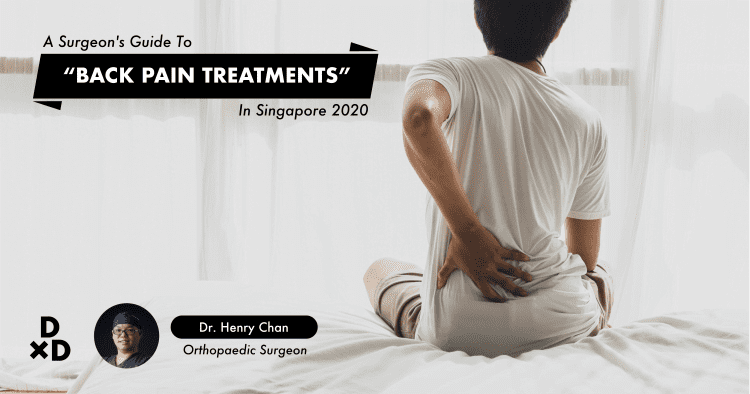Surgery is not commonly needed for all natural aging disc protrusions (like a bulging old worn out car tyre) - only 10% require surgery ultimately either due to intractable or worsening pain/disability.
The majority 90% can be managed conservatively successfully and repeatedly with medications, physical therapy (physio, chiro, osteo, tcm), injections (including steroid, radiofrequency or "laser" disc-plasty) as long as the conditions do not worsen rapidly as they are being slowly and gradually managed.
The commonest reason for things going downhill unfortunately is an unforeseen acute or gradual accelerated weakening of the already pre-existing degenerated disc (from injury, sports, occupation, sedentary postures, etc).
It ruptures like a burst car tyre, with the extruded disc fragment compressing the adjacent spinal cord or nerve within the spine resulting in pain/weakness/numbness in arms/legs.
Rarely do patients experience end-stage paralysis and loss of arms/legs/bladder/bowel control (cauda equina syndrome) as this usually occur gradually with plenty of warning symptoms, signs and not to mention pain (as long as you don't get into a major trauma or fall from height) enough time for you to do an MRI scan to see the ruptured disc with the offending extruded disc fragment compressing nerve or spinal cord.
Traditional medical advice its dangerous to leave a "slipped" disc occupying/compressing >50% of the cord/nerve channel space in the MRI (some surgeons even suggest 30% or even less for surgery).
Only open surgery (NOT the abovementioned injections) is able to physically, completely and directly remove the offending disc. The aim is not simply to treat the pain for short term (>90% success rate) but more importantly to permanently remove the threatening disc for long term before it has a chance to gradually worsen further to irreversible loss of arms/legs/bladder/bowel control in the future (like a "time bomb" as quoted from one of my patient).
Just to be certain, I make sure to show the size of the disc fragment I removed to my patient after surgery and if insurance permits, to repeat another MRI after surgery to reassure my patient that the offending slipped disc in the preop MRI is no longer there and the spinal cord/nerves are now free (not unlike surgery for tumour - you don't want to leave anything behind!) without worrying about radiation unlike X-ray/CT scans.
Contrary to popular belief, a ruptured disc does not heal or regenerate (growing the disc back means getting the same disc slipped again!). And we can all live without a disc or two - in fact all our MRIs after age of 70-80 years old will show little discs left (all "collapsed") as all of our discs would have worn out naturally by then since the beginning of homosapiens walking on 2 legs instead of 4 (thats why we are given 5 lumbar discs and 6 cervical discs as "spare tyres") In the long run, our painful discs will either resolve naturally through slow gradual aging, or artificially through surgery if timely treatment is necessary.




